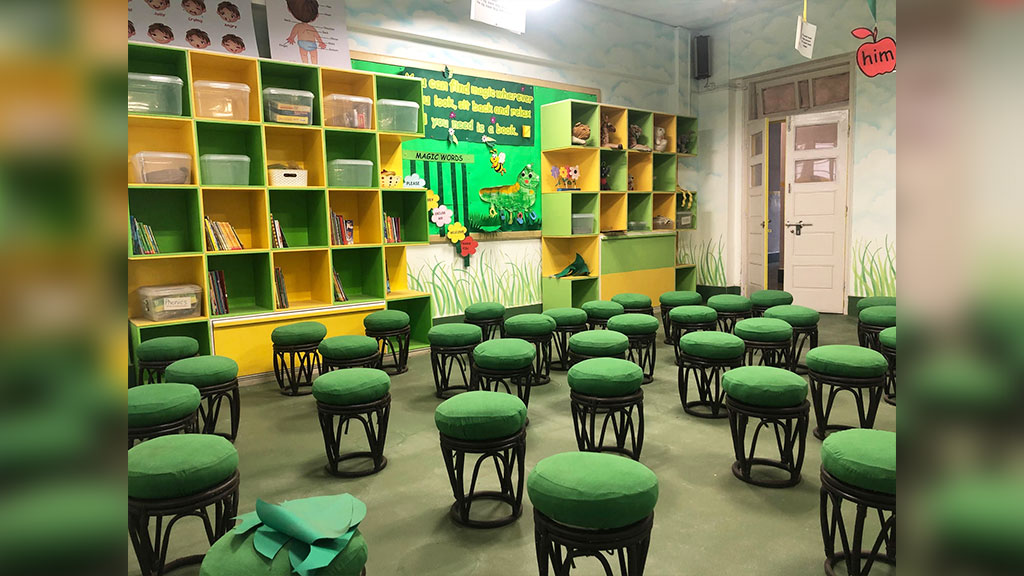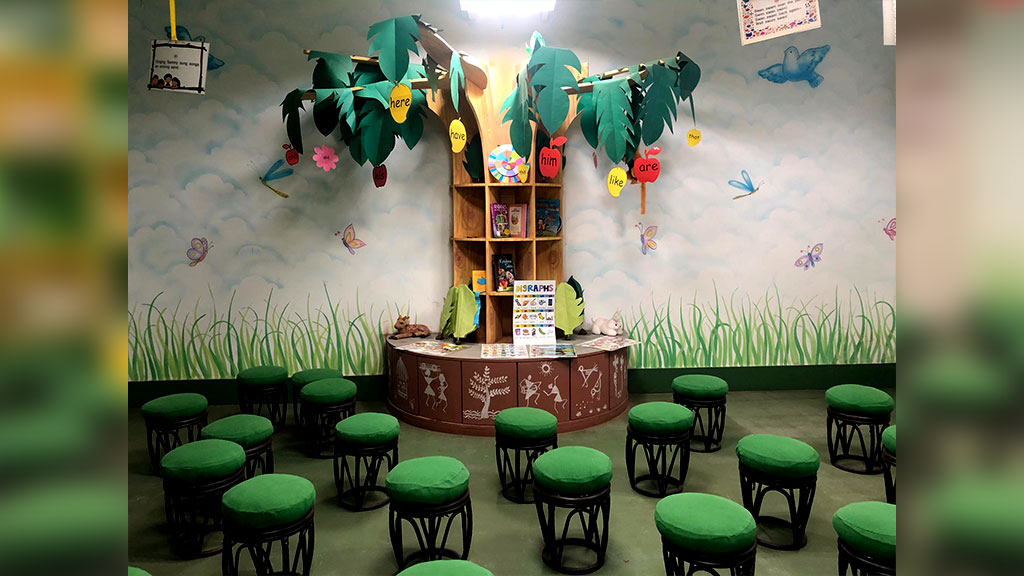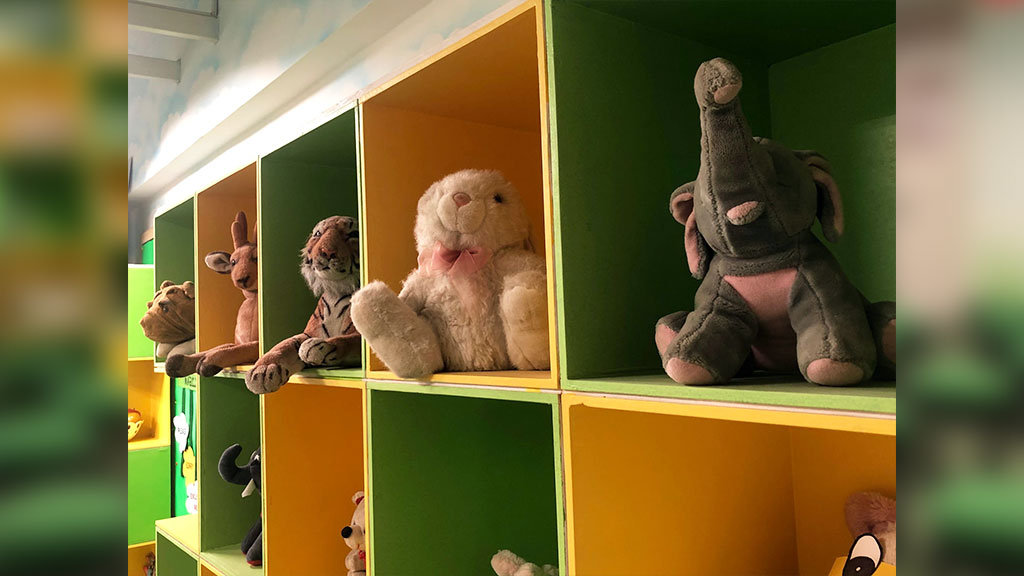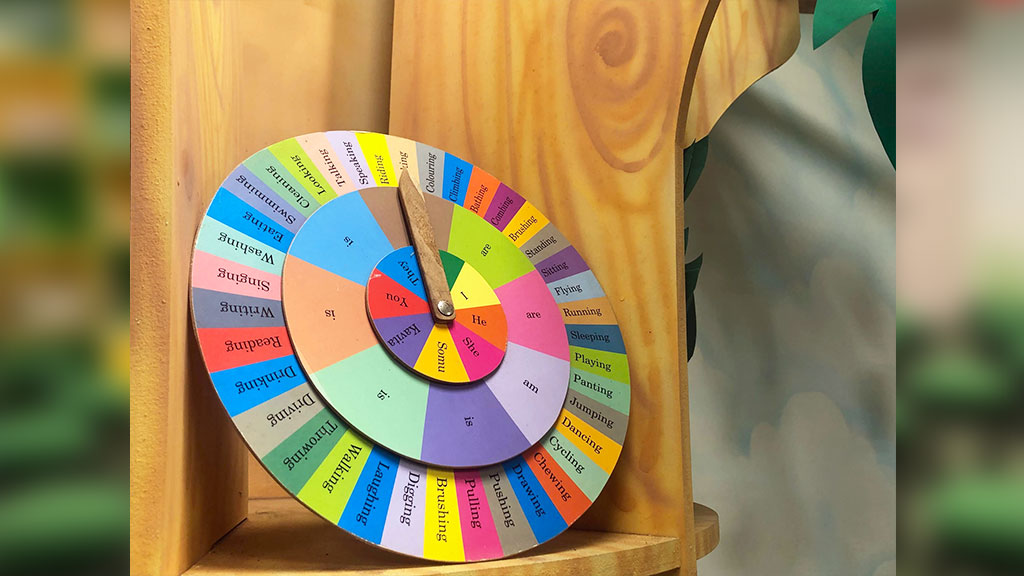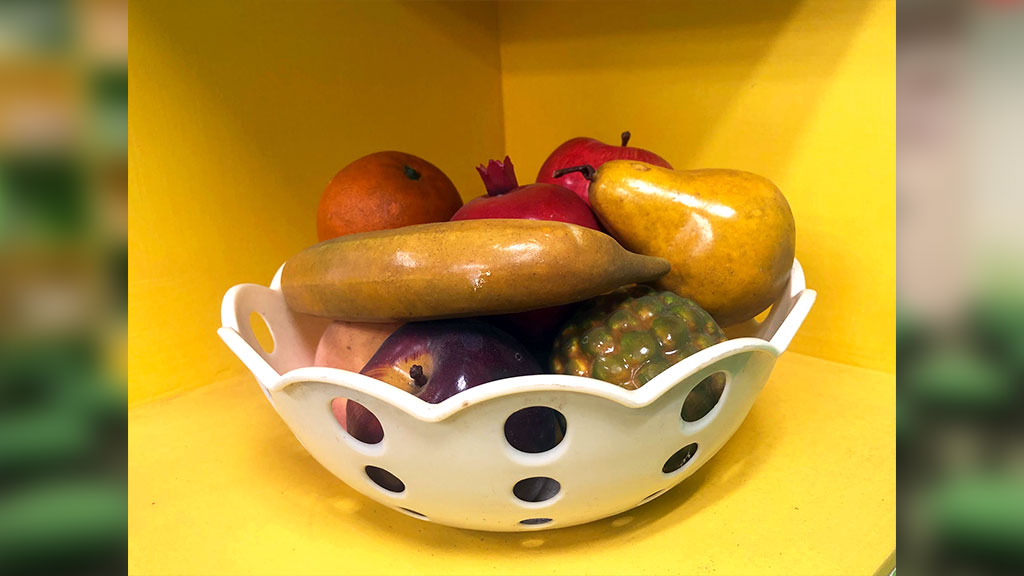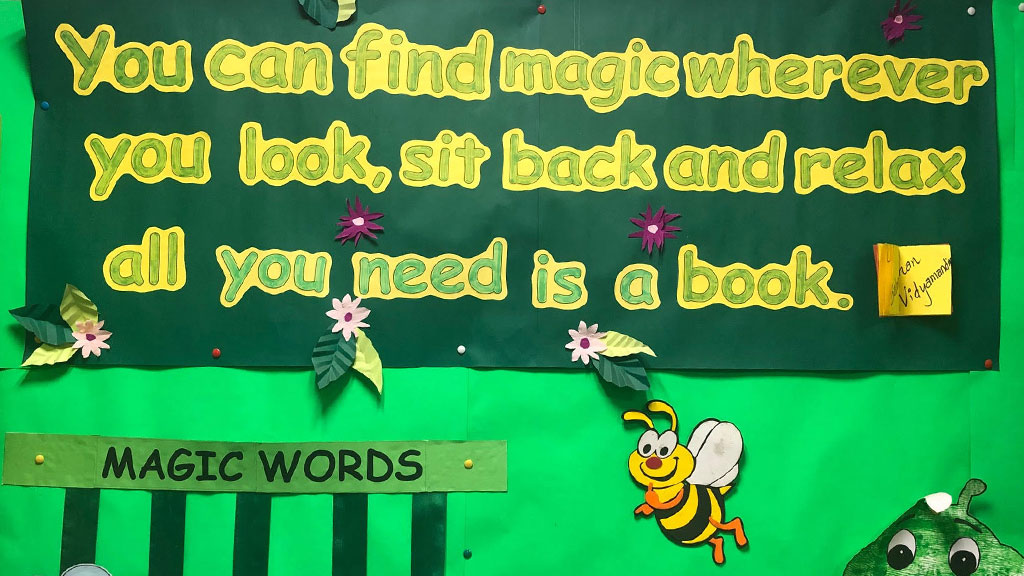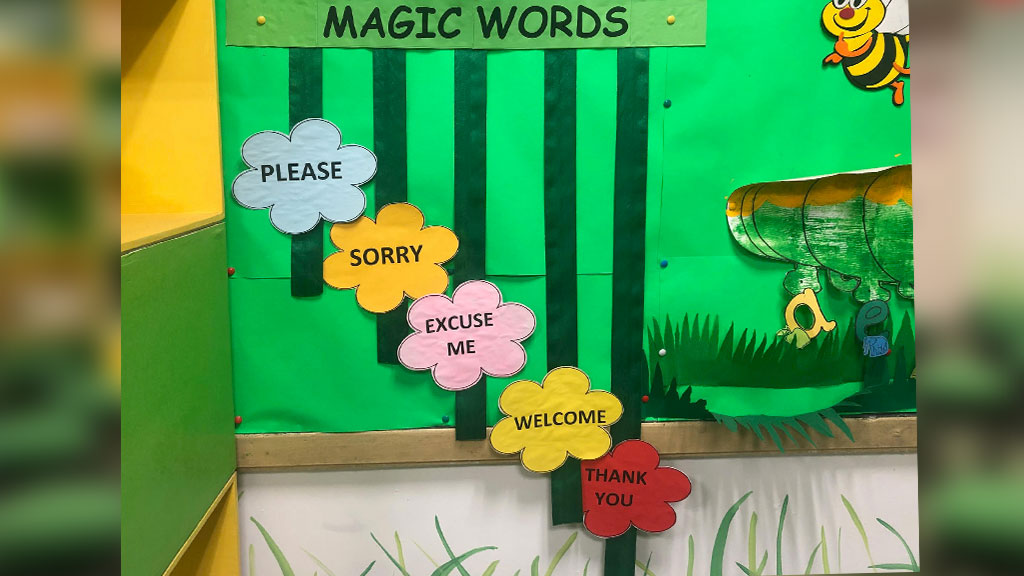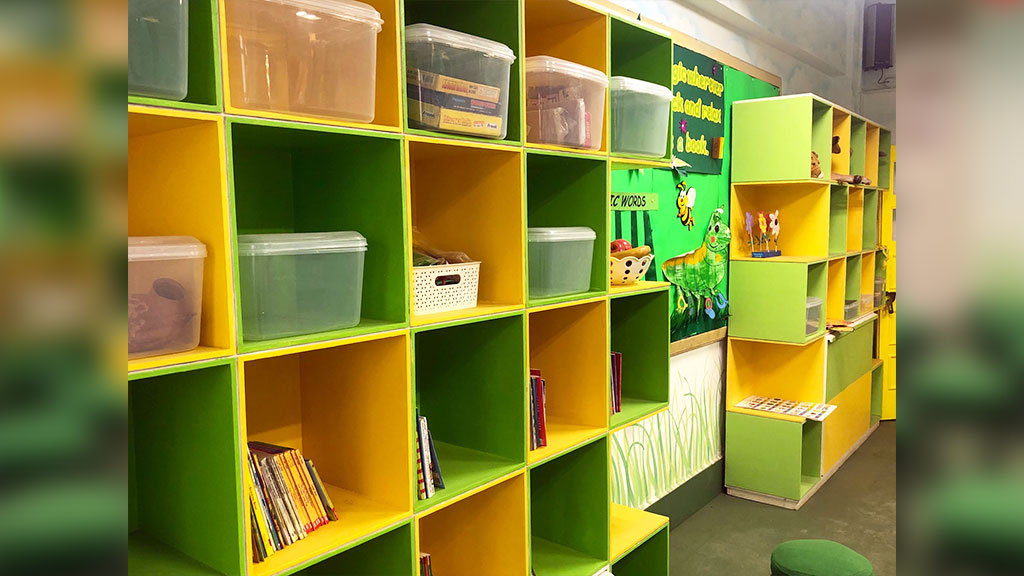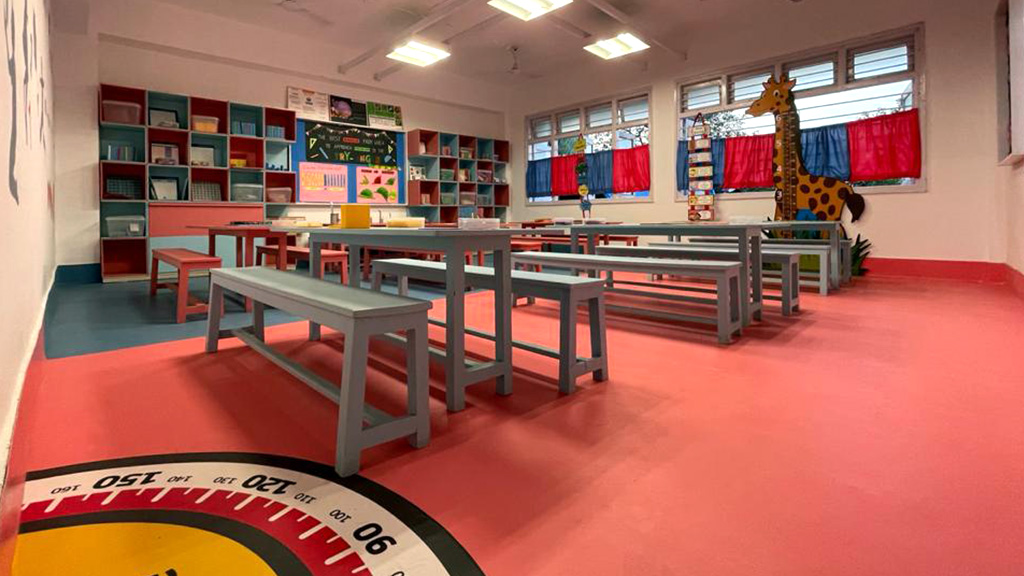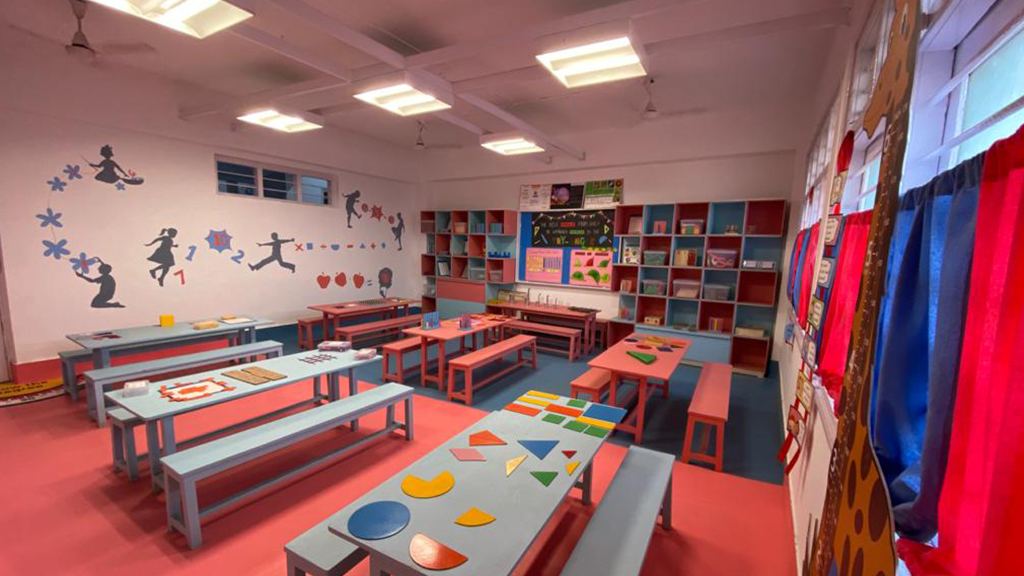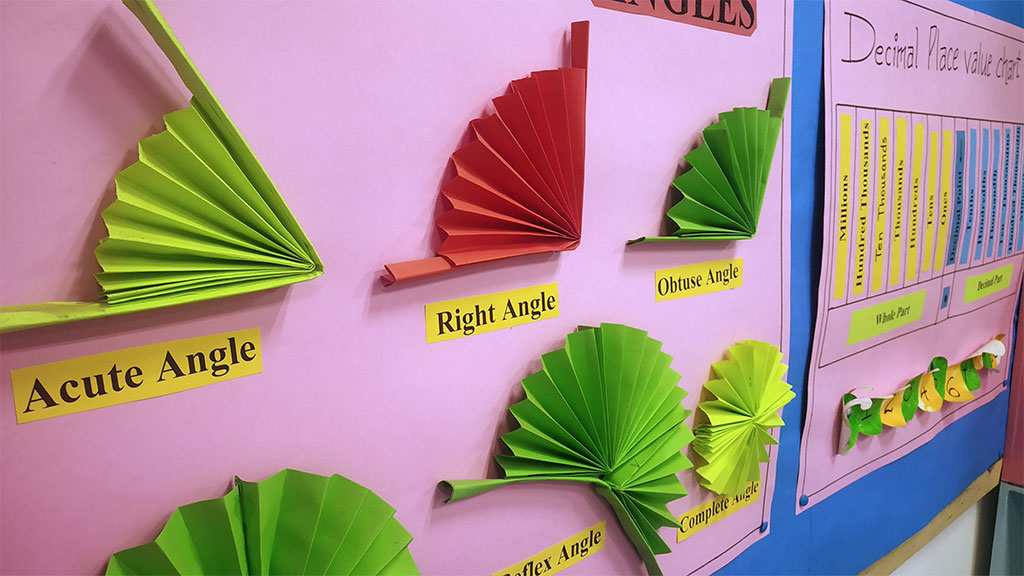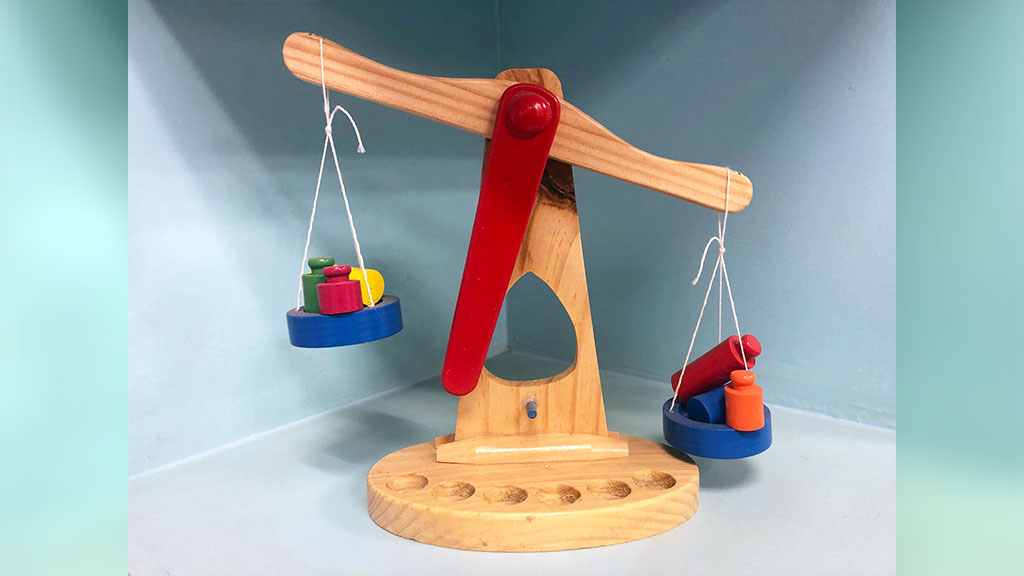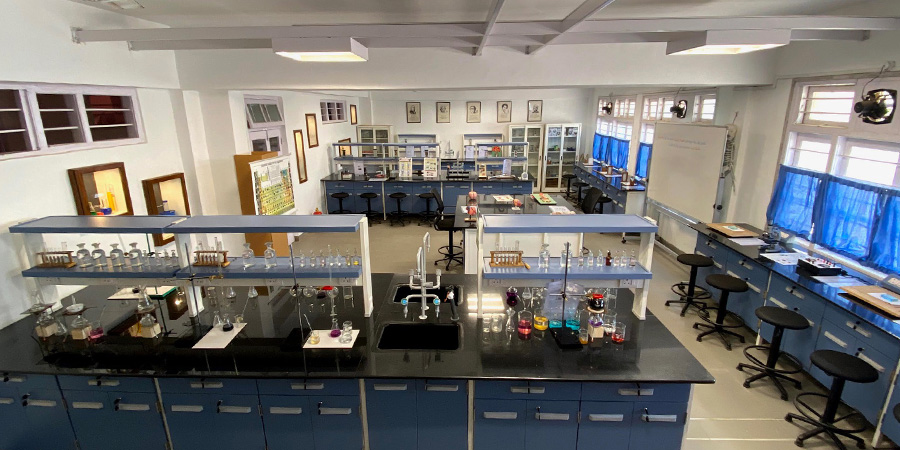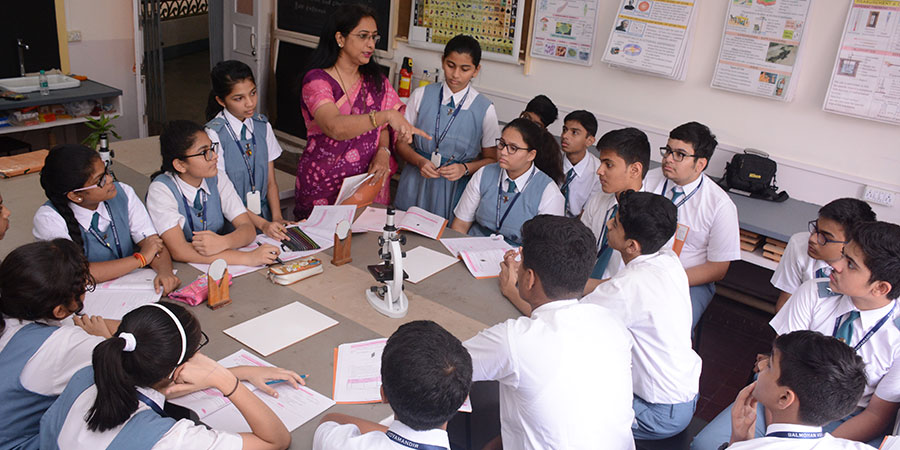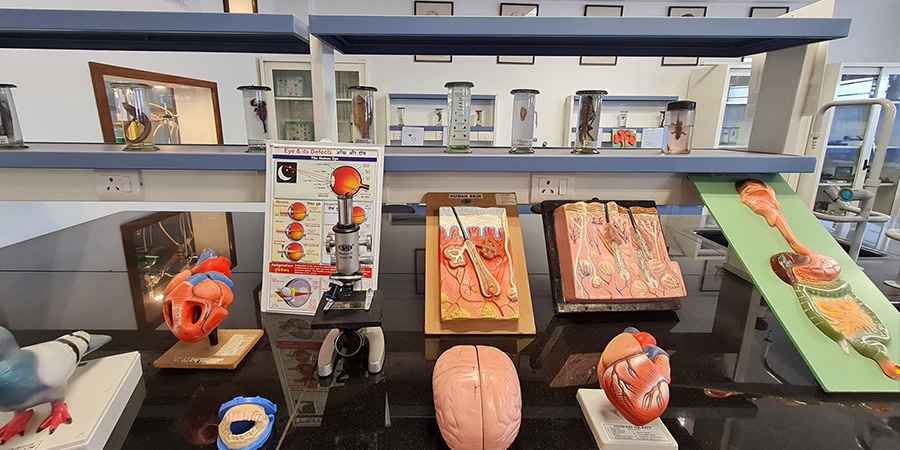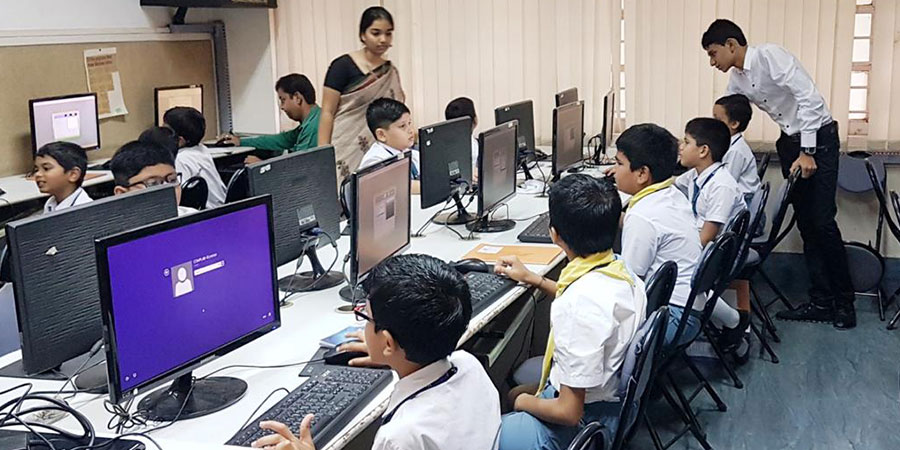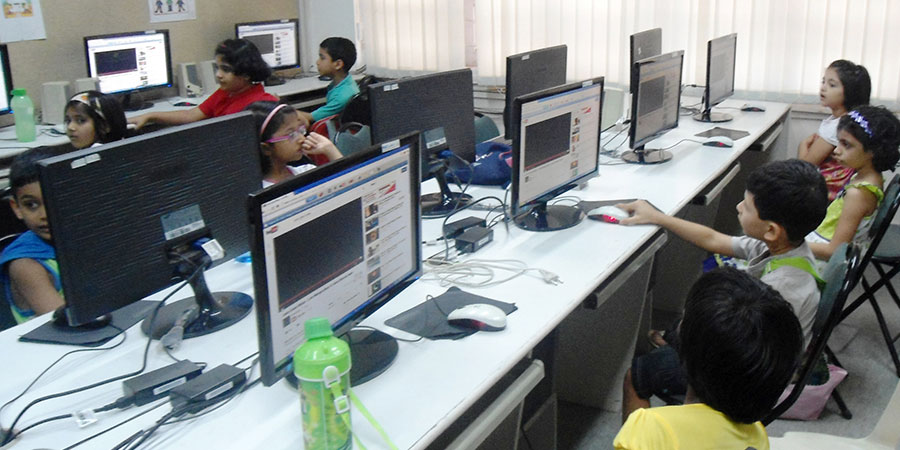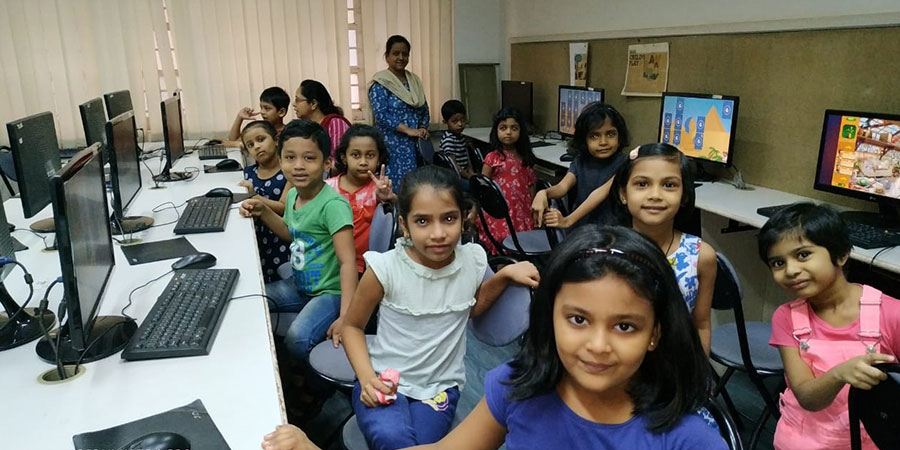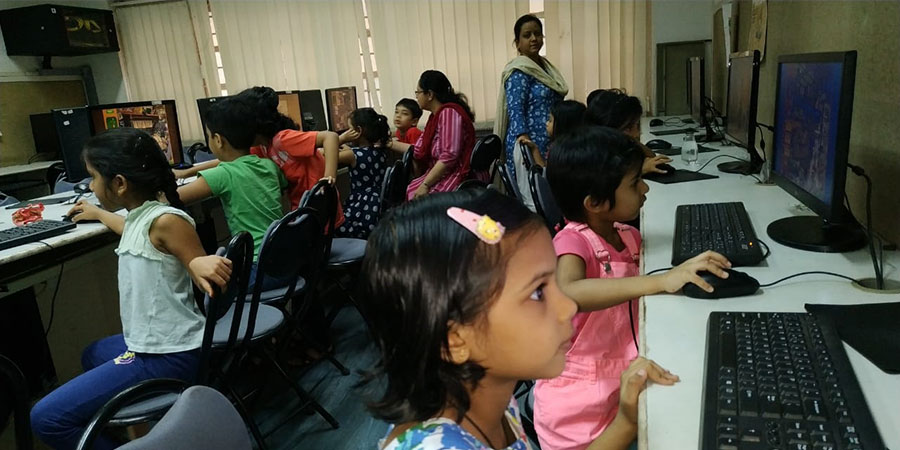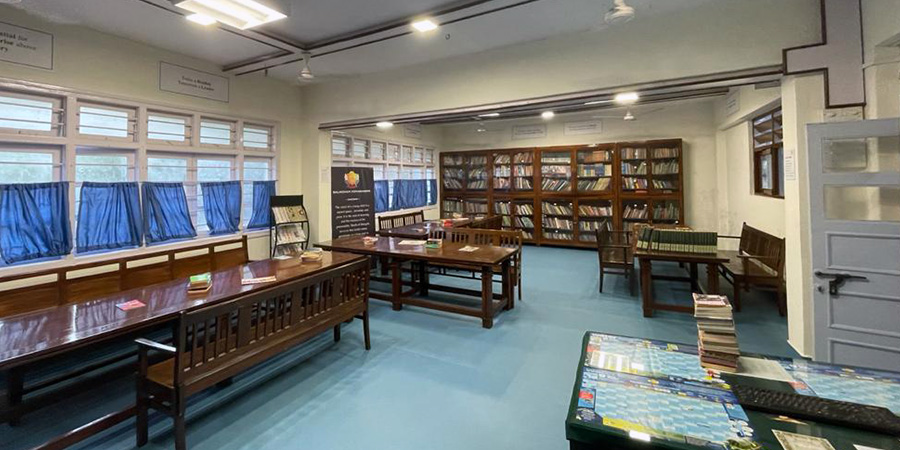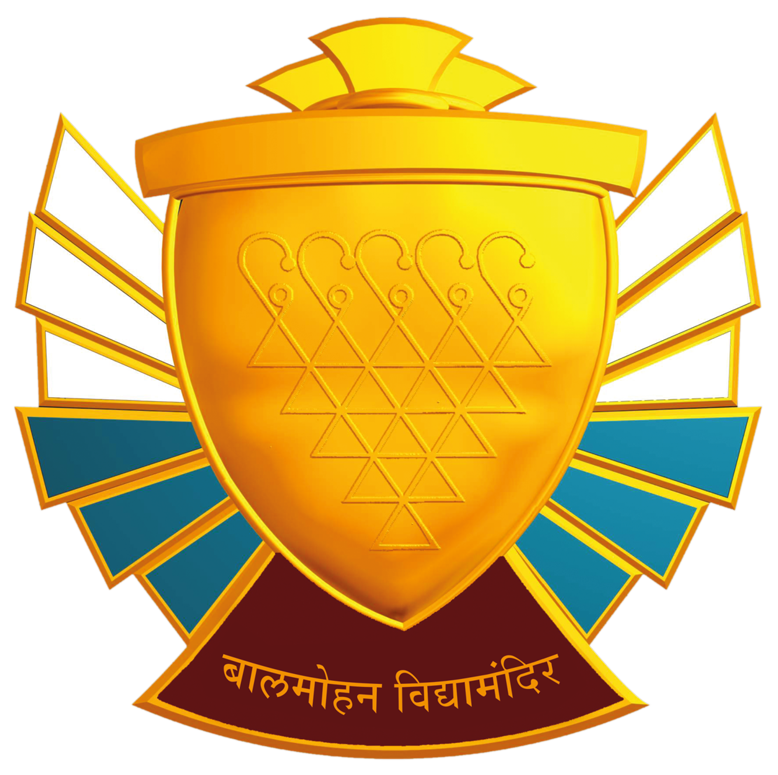Innovative Labs
Our education system is a scientific process in the making of a ‘human being’ .At Balmohan, stress is laid on development of the total personality of the child.
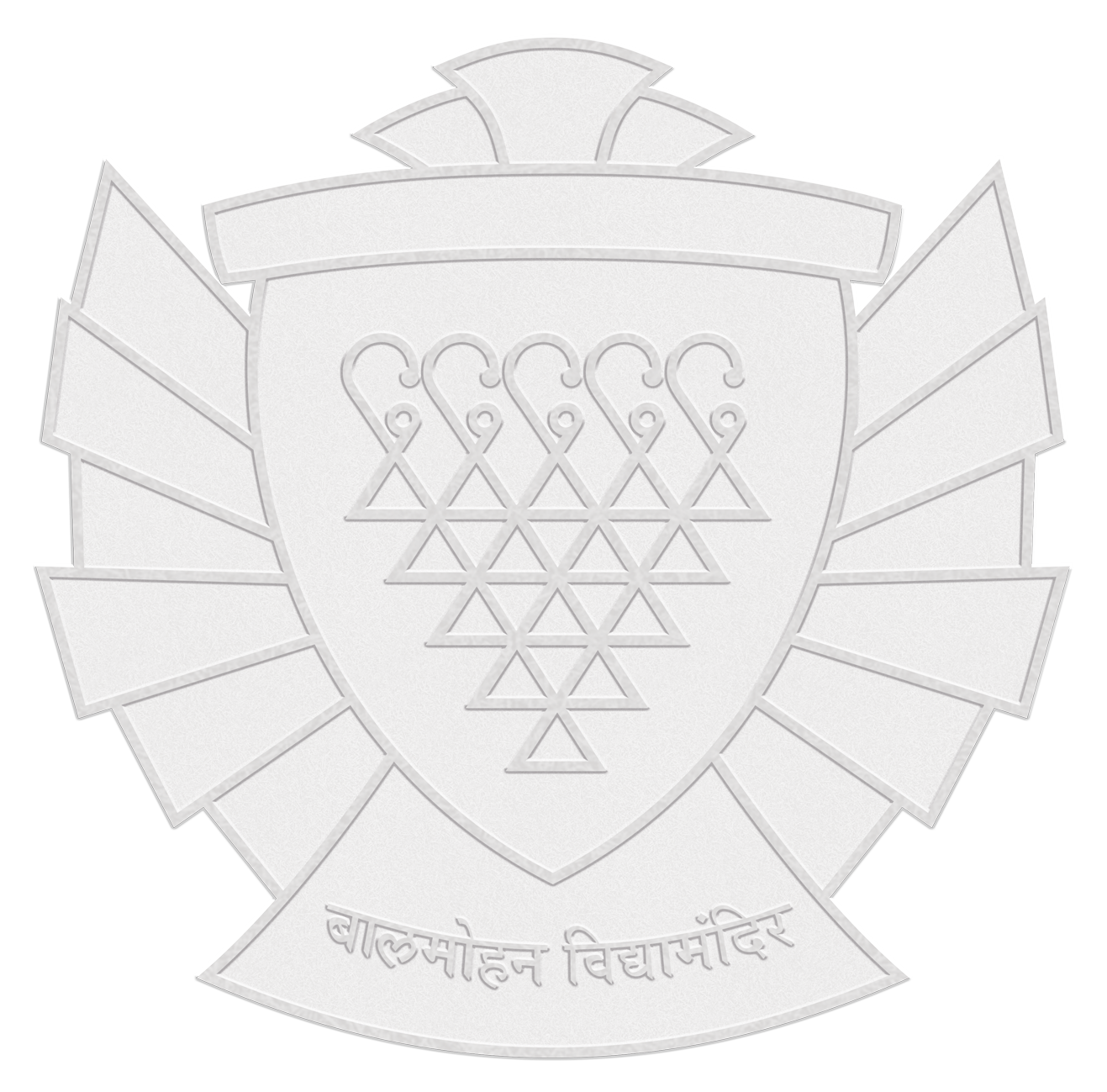
Innovative Labs
At Balmohan, it is a teacher’s duty to create a rational, perceptive, tolerant and mindful human being. Encouraging children to relate and understand facts from fiction, myths from reality, to engage with varied people, to debate with eloquence, to accept victory with humility, and failure with grace, to stand by their beliefs no matter the opposition, but also to question their minds, examine their thoughts, and change their opinions when faced with the truth.
Balmohan chooses not to impose a strain of belief systems into a child, instead helping the child to build a vibrant and curious thinking mind to allow a child to construct his or her own social, political and philosophical beliefs. Our school strives to instil the value of scrutiny and introspection, the only tools of real education.
We believe that a school is a place for fun, work, and learning. Fluid learning implies that a child need not adjust to fit into a singular means of learning; instead the School will diversify the means of learning to adjust to every unique child.
We believe in learning fluidly, by creating an ambience which is flexible, which is attuned to every child’s abilities, skills, talents, aptitudes, and passions. Every child is different, and he and she only develops when his and her learning is entwined with his and her mother tongue; children imbibe only when their education is through narratives from their own history and their own ethos. We believe that a child will connect and reflect on lore from his own land, through Indian stories and philosophies.
Nations born and rebuilt post World War Two have survived and thrived, not despite, but because of the stories that these nations told their people, the histories that were retold generation after generation. Universities in Japan, Singapore, Malaysia, as also India invoked their rich history and way of life to inspire children to work towards the greater human cause.
However, India is unique in its existence, in that after three centuries of colonial rule, India now liberated, chose to embrace progressive ideas of democracy, secular thought and republican governance, but it has done so of its own volition, having found its own Indian voice. India inspired its children through Indian narratives to imbibe the values of social liberty, progressive thought, civil rights, rule of law, equality, and nation-building.
Balmohan follows this unique blend of both worlds, borrowing a little from the West, while also reimagining a little from the East. Balmohan Vidyamandir’ s philosophy draws from global ideas of child-building and mind-shaping, through narratives nestled in the age-old Indian traditions of story-telling, community living and experiential learning.
Language Laboratory
Learning a language is unlike learning anything else. To foray into a language, is also to immerse oneself in the history and culture of that lingual heritage. To be able to understand any spoken and written tongue is only possible when one understands the cultural context in which it is written or spoken. The idiom ‘to bite the bullet’ is used to imply that you are making yourself do something difficult or unpleasant that you have been avoiding. This idiom is believed to have originated during the American Civil War, when wounded soldiers needed to be operated on and because no painkillers were available, army doctors often gave the patients a wooden billet to bite on to focus their attention on the biting instead of the painful operation. This biting of the billet evolved into biting the bullet over many years of use. A phrase or idiom exists in the social and historical context of its origin and one begins to enjoy a language when one discovers its secrets.
Being able to communicate proficiently is essential in our global village of fast exchanges. Communication involves the ability to listen, to write, speak and read a language, but most importantly to give expression to one’s thoughts in that language. Often, people are conversant in one language, and simply think and translate their thoughts into other languages. To able to speak French is the ability to think in French and then speak in it. It is not enough that a child speaks in Marathi, if the thought in English is simply being verbalised in Marathi words. Learning a language is the ability to think in that language.
A child is a sponge the first seven years of his life, and the languages he learns at that time stay with him forever. The Language Laboratory plays an important role in the language learning process. It is not merely preparation for the next essay or the coming exam, it is about changing the way we create thought.
Mathematics Laboratory
The Balmohan Mathematics Laboratory is a place where students can learn and explore mathematical concepts and verify mathematical facts and theorems through a variety of activities using different materials. The idea of the Lab is to stimulate the analytical and problem solving ability of a child’s mind.
Mathematics is not drudgery to be endured, but magic to be enjoyed, and the Lab tries to nudge a child towards a favourable attitude to maths.
Science Laboratory
Hands-on laboratory science experiences are critical to the learning process across all areas of study. Research has shown that students who engage in well-designed laboratory experiences develop problem-solving and critical-thinking skills, as well as gain exposure to reactions, materials, and equipment in a lab setting. Sustained investments in hands-on experiences help inspire students to further their education and prepare them for high-technology careers.
A scientist must first have the humility to say “I don’t know”, to begin the quest for knowledge. Ideas of empiricism and epistemology, the ability to validate and test information, as also to reject superstition and dogma have their roots in the study of science.
Computer Laboratory
Library and Reading Room
Without words or anger, without bread or money.
In books, I meet the dead as if they were alive,
In books, I see what is yet to come,
All things decay and pass in time,
All fame would fall into oblivion. If you approach them, they are not asleep; If you seek them, they do not hide.
– Richard de Bury, The Love of Books: The Philobiblon of Richard de Bury
Men build libraries and then libraries build men.

